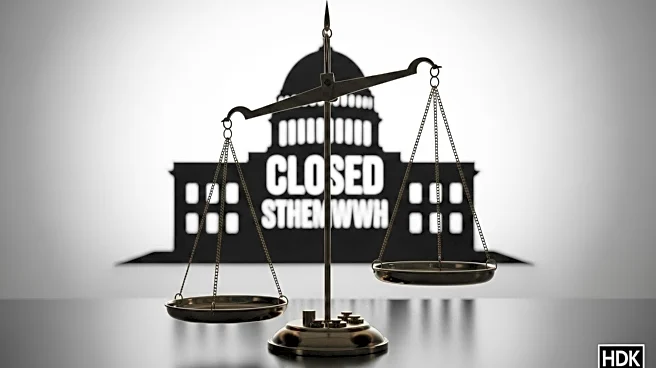What's Happening?
The U.S. government officially entered a shutdown after lawmakers failed to agree on a funding bill, leading to mixed reactions in the stock market. The Dow Jones Industrial Average rose slightly, while the S&P 500 remained flat and the Nasdaq Composite experienced a minor decline. Historically, stock markets have shown resilience during government shutdowns, with the S&P 500 often gaining in the months following such events. However, the shutdown is expected to impact federal employees and delay key economic data releases, contributing to uncertainty in the market.
Why It's Important?
The government shutdown introduces uncertainty into the economic landscape, potentially affecting sectors reliant on government contracts, such as defense and healthcare. While the stock market has historically weathered shutdowns, the current situation may lead to volatility, especially if delays in economic data obscure the Federal Reserve's interest rate decisions. Investors are advised to focus on broader market drivers, such as corporate earnings and Federal Reserve policies, which continue to support stock market growth despite political disruptions.
What's Next?
The duration and resolution of the government shutdown will be closely watched by investors and market analysts. Prolonged shutdowns could exacerbate economic uncertainty and impact sectors dependent on government funding. The Federal Reserve's interest rate decisions will remain a key focus, as rate cuts could stimulate economic activity and support stock market growth. Investors will also monitor corporate earnings reports for insights into market trends and potential impacts of the shutdown.
Beyond the Headlines
The government shutdown highlights the political challenges in reaching consensus on budgetary issues, raising questions about the long-term implications for governance and economic stability. The potential for large-scale federal worker layoffs underscores the human impact of political gridlock, prompting discussions on the role of government in economic management. Additionally, the shutdown may influence public sentiment and voter perceptions ahead of future elections.









